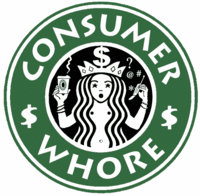The real problem seems to be that instead of asking permission for each book, Google announced their intention of doing this and gave publishing house an opportunity to opt out. Which at the very least looks pretty arrogant, and will probably prove to be no defense at all.
Thoughts:
It's a bit ironic that book publishers, of all things, are getting into the intellectual property protection controversy. Audio/video media, software, merchandising, reference material - all of them really might have something to lose if it's safe and easy to get their product off the Internet. But books? I can't imagine myself reading an e-book, at least not with today's technology. For me at least, and I don't think I'm too very unusual in this, neither a desktop nor a laptop could possibly compare to a book you can carry around with you wherever, fit into some pockets, and not worry about because a paperback is only like $5-$10 and can take a fair amount of getting thrown around. (One's immobile, the other's fragile, and they both are less comfortable to read.) And printing a book out? Even assuming that it's as easy as hitting "print" once, and in reality it wouldn't be at all, you still probably wouldn't save any money after the costs of paper and printer cartridges. So how could publishers possibly think they face any competition from a search engine?
Also, it's sad that an author has to give up all proprietary rights to their work. Inevitable, yeah, and far from new, but sad. For all that it's (mostly) luxury items, media seems to be more stratified and soulless than the rest of our culture.
That's hardly the only way, too. I saw a Web site once with pictures of art that almost anyone would call either parody or commentary... but all of which was ruled copyright or trademark infringement. In some arenas it seems like if you want to mock or criticize anything owned by a corporation, you are legally bound to get their permission.
As you've probably gathered by now, I don't like the idea of "intellectual property." I'm not an extremist about it - I think such a thing should exist, it just gets overused and abused - and I don't really have a solution for the problems I see. Hell, if it's hard to define intellectual property it would be a lot harder to define abuse of it. But in the same vein as the "I know it when I see it" definition of pornography, if Starbucks can sue the creator of this and win,
 it's abuse.
it's abuse.
No comments:
Post a Comment